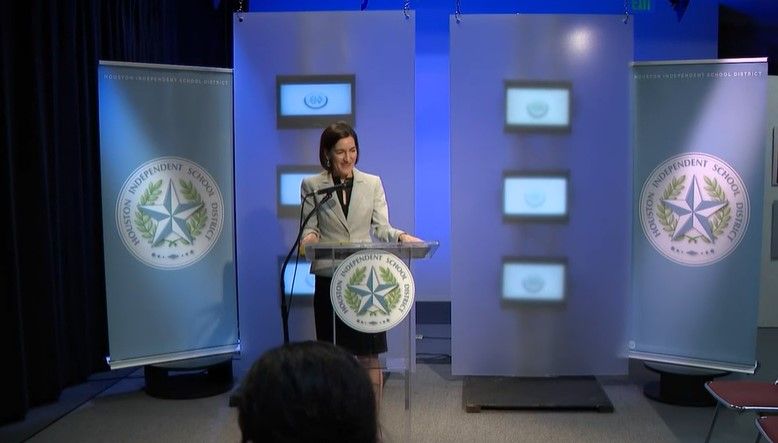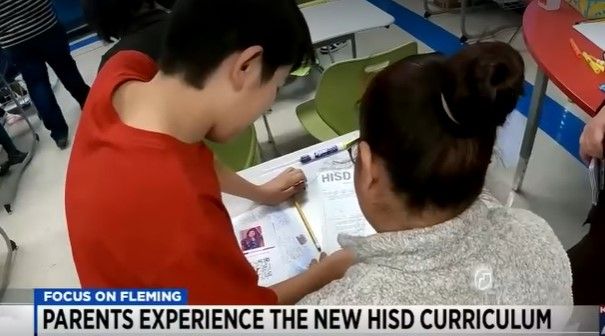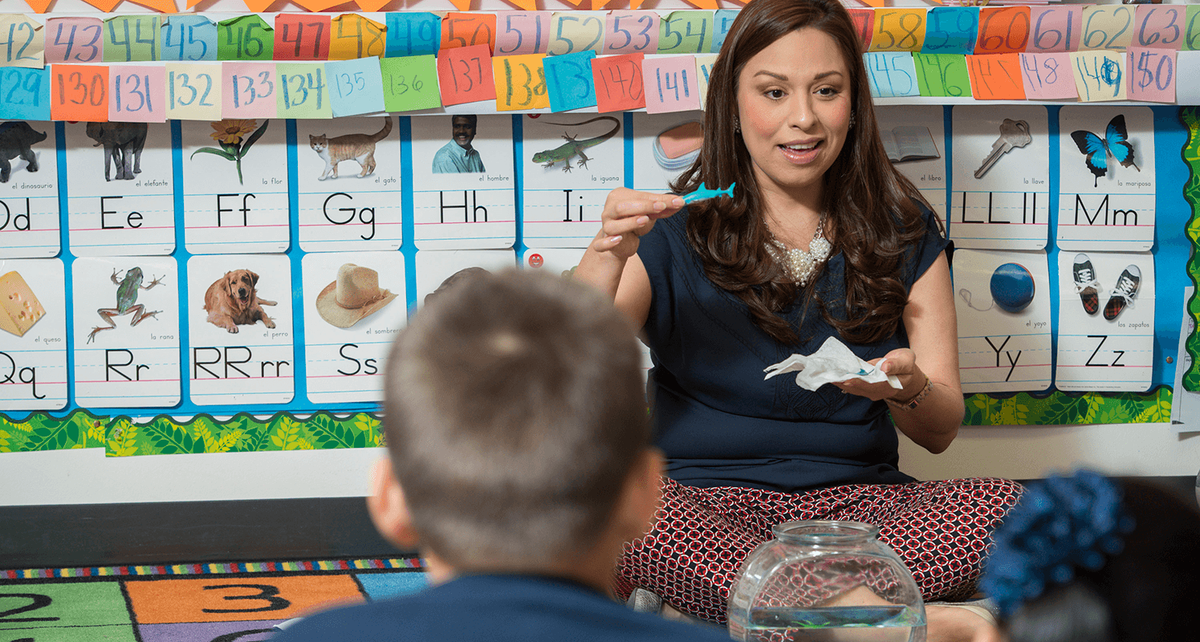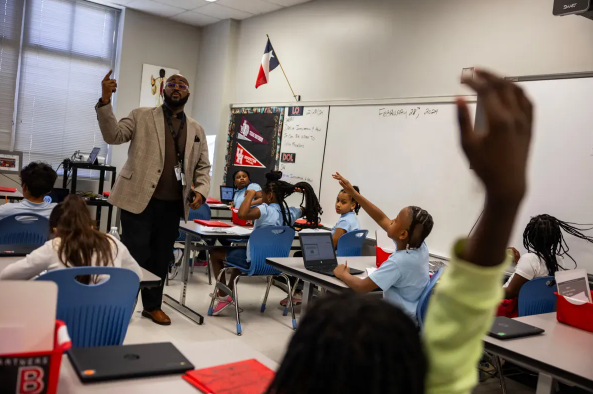|
|
 |
|
| CASE Report
Smart Brevity ®
count: 3.5 mins...916 words
CASE is a collective of Houstonians committed to ensuring that every student within Houston Independent School District (HISD) has the opportunity to receive a high-quality education.
If you would like to continue receiving updates, opt-in here.
|
|
HISD Raises Teacher Salaries
 This week, HISD announced
plans to raise its starting teacher salary to $64,000, which is “significantly higher” than surrounding districts.
According to the district’s new compensation plan
, released this week, all teacher salaries will increase. The highest raises will go to teachers that teach in the highest-need areas, including in underserved areas and in special education.
Check out KHOU’s story here.
By the numbers:
HISD’s starting salary of $64,000 is well above the statewide average of $55,616. NES high school teachers will have even steeper increases, earning starting salaries of $82,816.
Special education teachers will earn the most under the new compensation plan, starting at an average of 86,000. With five years’ experience, that number rises to an average of $92,000.
Why it matters:
HISD’s high teacher salaries will serve to help recruit and retain the best educators, providing HISD students with the highest quality instruction. Since NES schools are primarily in underserved areas, the large increase in NES salaries means that the students with the greatest needs will learn from the best instructors.
What’s next:
The Board of Managers will vote on the new plan at the June 13 board meeting. If approved, the new payscales will go into effect on July 1, 2024.
|
|
Growth Evident in Mid-Year Test Results
 Last fall, KPRC 2 began a year-long study
of Fleming Middle school to explore how the NES model would affect students, staff, and families. Now, mid-year test results are in, and they are overwhelmingly positive.
Mid-year test results at Fleming show “notable” growth in science, reading, math, and algebra:
-
Eighth-grade students at Fleming Middle School showed above-average growth in science, math, reading, and algebra, an outperformed their peers across the nation.
-
Seventh-grade students similarly saw above-average growth in these core subjects.
-
Sixth-grade students saw growth in science and remained stable in math.
Why it matters:
Fleming Middle School is a part of the Wheatley High School feeder pattern - the school that originally sparked the state intervention due to longstanding poor academic performance. If Fleming shows progress, there is reason to remain optimistic the NES reforms are having a positive impact on student outcomes.
What they’re saying:
“They have to be really focused. They have to basically follow directions. As far as me being a parent, I’m all for teaching her and giving her that next level in her education.” - Lamar Stephen, a Fleming MS parent.
Clik2Houston’s full story is here.
|
|
96% of HISD Teachers Returning
 HISD announced
Monday that an overwhelming majority of their teachers say they are staying for the 2024-2025 academic year, according to an annual questionnaire.
"These numbers clearly show our teachers are dedicated to their students and want to be a part of the most important transformation effort in the country," said Superintendent Mike Miles.
By the numbers:
Of those who completed the questionnaire, 96 percent said they want to continue teaching in HISD. Additionally, 97 percent of teachers who work at an NES campus want to stay in the NES.
This year, 93 percent of HISD teachers, or 10,230 teachers, responded to the survey - more than in previous years.
Why it matters:
Teacher retention has been a challenge for school districts across the country. The fact that an overwhelming majority of HISD teachers are committed to returning shows that HISD is providing the resources, environment, and compensation that teachers want. Rather than move to surrounding districts, HISD teachers prefer to stay at HISD.
What they’re saying:"When it comes to student success, nothing matters more than the teacher in the classroom-and we're so pleased that our HISD teachers want to stay here with us," - Chief Human Resources Officer Jessica Neyman.
|
|
“Art of Thinking” Teaches Critical Skills
 Art of Thinking, a new course being taught in HISD’s NES schools, teaches students about logic, bias, correlation, objectivity, subjectivity, and other elements of problem-solving and critical thinking. This innovative course is designed to equip HISD students with skills to help them effectively navigate the sea of information that we all encounter daily.
Check out Houston Landing’s story here.
Go deeper:
Several other states, notably California
, New Jersey
, and Delaware
, have already passed legislation mandating courses on media literacy and critical thinking for K-12 students. As those courses are being developed, Houston ISD’s Art of Thinking is already up and running - allowing its students begin acquiring these skills right away.
Why it matters:
Jobs of the future will increasingly rely on skills related to problem-solving, creative thinking, and artificial intelligence. Therefore, it is imperative that students are prepared for this reality from an early age. Art of Thinking teaches skills that will give HISD students an edge when entering the workforce.
By the numbers:
Art of Thinking teachers will earn between $80,000 and $91,000 in base salary next year, underscoring Superintendent Miles’ high regard for the course and its importance to overall student achievement.
What they’re saying:
“Today, media literacy is a survival skill. It’s something that we all need. There’s a lot of focus around social media platforms and cellphones in the schools so legislators care about this problem, and they’re looking for solutions.” - Erin McNeill, founder and President of Media Literacy Now.
|
|
Did someone forward this email to you? Subscribe here
to receive our weekly updates.
|
|
|
|
|

